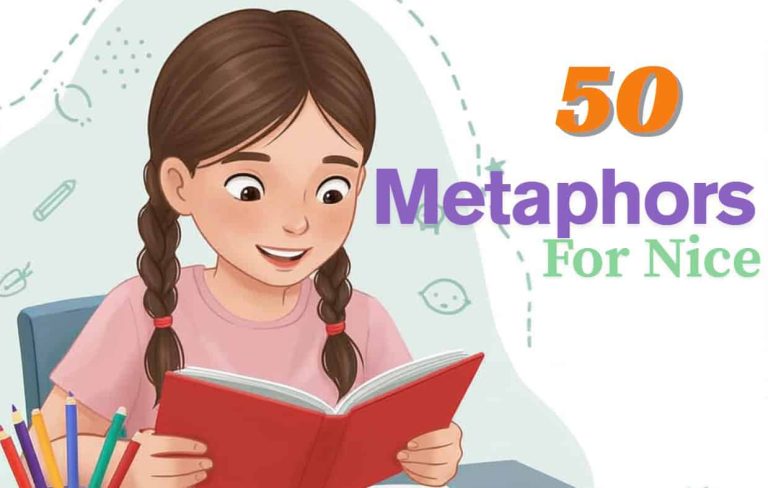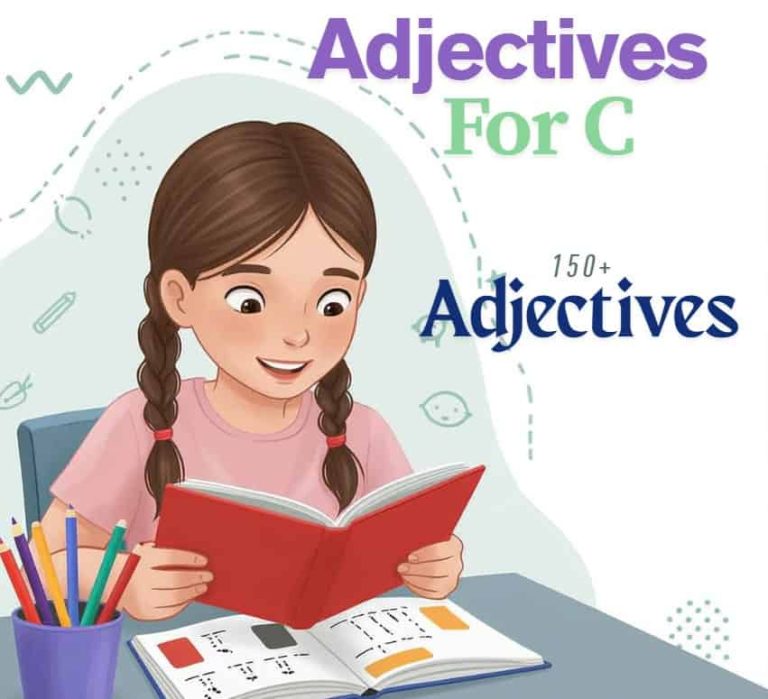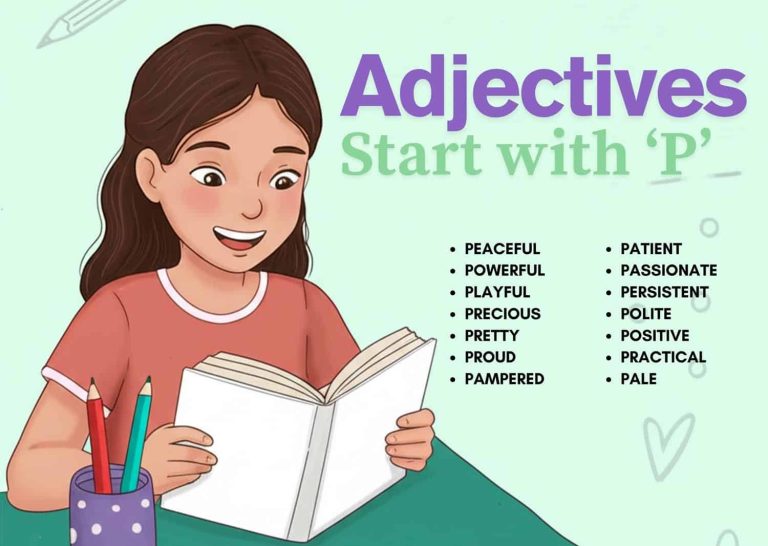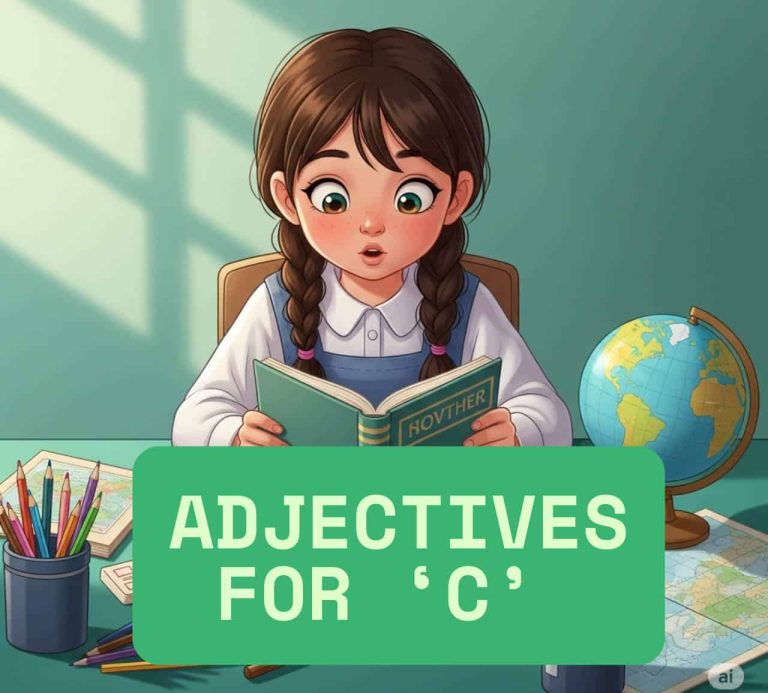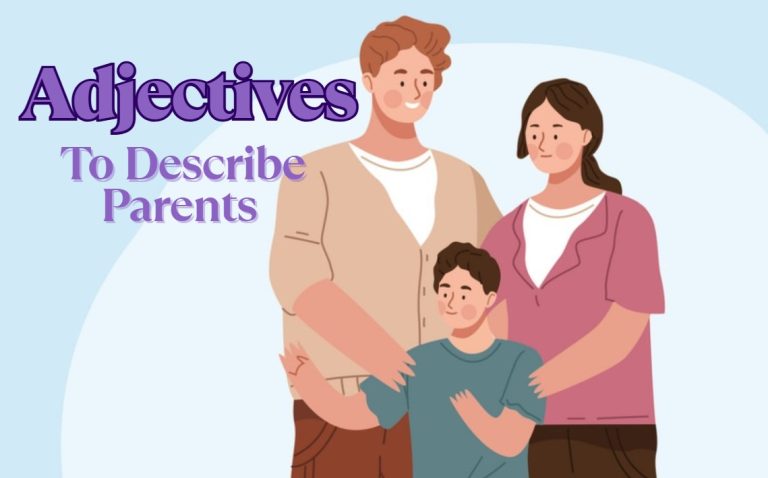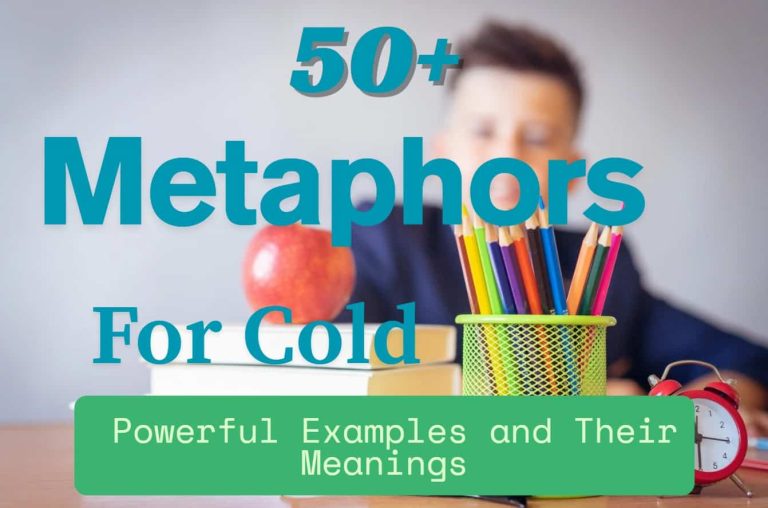Adjectives That Start With ‘W’: 200+ Wonderful Words with Examples
Adjectives are the colorful building blocks of language, adding detail and vibrancy to our descriptions. While we often use common adjectives without a second thought, exploring adjectives that start with specific letters can expand our vocabulary and enhance our writing.
This article focuses on adjectives that begin with the letter ‘W,’ providing a comprehensive guide to their meanings, usage, and variations. Whether you’re a student learning English, a writer seeking more descriptive language, or simply someone interested in grammar, this guide will equip you with the knowledge and tools to effectively use ‘W’ adjectives.
Understanding and using a wide range of adjectives, including those starting with ‘W,’ is crucial for clear and engaging communication. These adjectives not only help us paint a more vivid picture with our words but also allow us to express nuances and subtleties that might otherwise be lost.
This article will delve into various categories of ‘W’ adjectives, providing examples and exercises to solidify your understanding and boost your confidence in using them correctly.
Definition of Adjectives Starting With ‘W’
An adjective is a word that modifies a noun or pronoun, providing additional information about its qualities, characteristics, or state. Adjectives that start with ‘W’ perform the same function, but they are distinguished by their initial letter.
These words add specific details, helping to create a more vivid and precise image in the reader’s or listener’s mind. They describe attributes like color, size, shape, condition, origin, and more.
Adjectives are essential for descriptive writing and clear communication. They bring depth and nuance to sentences, allowing us to convey precise meanings and evoke specific emotions.
Understanding the nuances of adjectives that start with ‘W’ can significantly improve your ability to express yourself effectively and creatively. They can be classified based on their function: descriptive, quantitative, demonstrative, interrogative, and possessive.
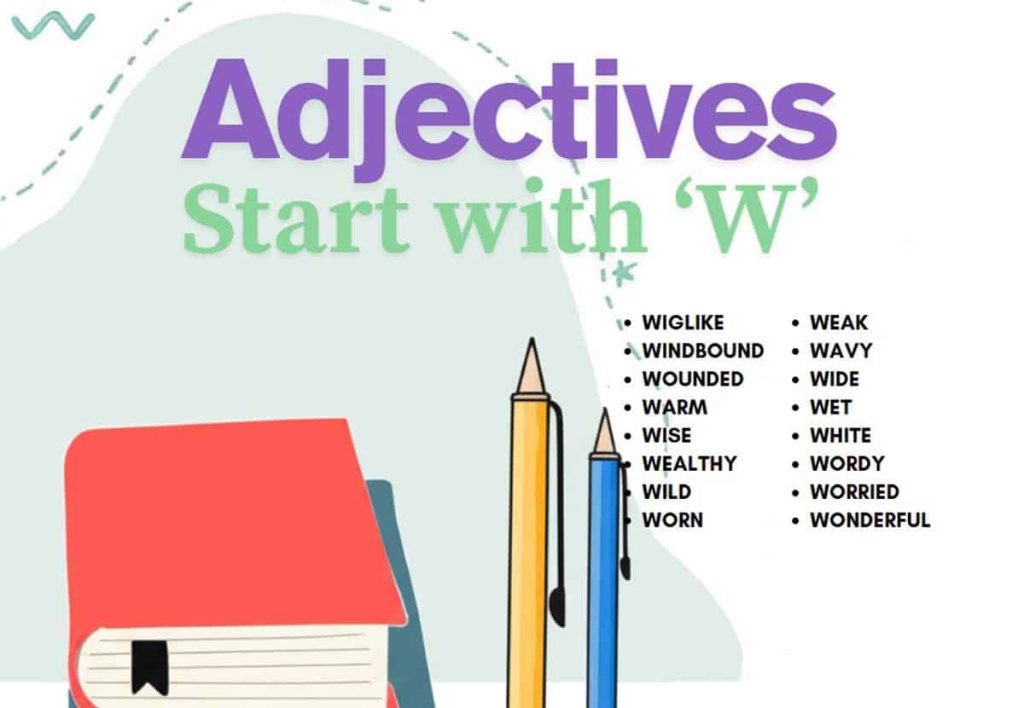
Structural Breakdown of ‘W’ Adjectives
Like all adjectives, ‘W’ adjectives typically precede the noun they modify. However, they can also appear after a linking verb (such as is, are, was, were, seems, becomes) to describe the subject of the sentence. Understanding this basic structure is crucial for using these adjectives correctly in various sentence constructions.
The structure of a sentence with a ‘W’ adjective usually follows these patterns: Adjective + Noun (e.g., wide river) or Subject + Linking Verb + Adjective (e.g., The river is wide). The placement of the adjective can sometimes subtly alter the emphasis of the sentence, but the core meaning remains the same. Recognizing these patterns will help you construct grammatically correct and stylistically effective sentences.
Types and Categories of ‘W’ Adjectives
Adjectives, including those starting with ‘W,’ can be categorized based on their function. Here are some common categories:
Descriptive Adjectives
Descriptive adjectives, sometimes called qualitative adjectives, describe the qualities or characteristics of a noun. They answer the question “What kind?” when referring to the noun.
These are the most common types of adjectives and are crucial for painting vivid pictures with words.
Examples of descriptive ‘W’ adjectives include: warm, wicked, wise, wonderful, worried, wealthy, whimsical, and witty. These adjectives add depth and detail to descriptions, making them more engaging and informative for the reader. They help specify the unique attributes of nouns, allowing for more precise communication.
Quantitative Adjectives
Quantitative adjectives indicate the amount or quantity of the noun. They answer the question “How many?” or “How much?”.
While not as common for ‘W’ adjectives, some indicate a general sense of quantity or degree.
Examples of quantitative ‘W’ adjectives (though less direct) include: whole. While “whole” might not always be considered strictly quantitative, it implies completeness and a specific quantity. For instance, “the whole cake” indicates the entire quantity of the cake. Other related terms like “wholesale” (referring to bulk quantities) could also be considered within this category contextually.
Demonstrative Adjectives
Demonstrative adjectives specify which noun is being referred to. They are used to point out specific items or people. The common demonstrative adjectives are this, that, these, and those. There are no common demonstrative adjectives starting with ‘W’.
Interrogative Adjectives
Interrogative adjectives are used to ask questions about nouns. The main interrogative adjectives are which, what, and whose. While “what” is an interrogative adjective, it’s important to remember it modifies the noun in the question.
Example: What book are you reading?
Possessive Adjectives
Possessive adjectives indicate ownership or possession. They show who or what owns the noun. Common possessive adjectives include my, your, his, her, its, our, and their. There are no possessive adjectives that begin with the letter ‘W’.
Examples of Adjectives Starting With ‘W’
This section provides extensive examples of ‘W’ adjectives used in sentences, categorized by their general meaning. These examples will help you understand how to use these adjectives in different contexts and sentence structures.
Examples of ‘W’ Adjectives Describing Positive Qualities
This table showcases adjectives that describe positive qualities or characteristics. They add a positive connotation to the nouns they modify, highlighting favorable aspects.
| Adjective | Example Sentence |
|---|---|
| Warm | The warm sun felt good on my skin. |
| Welcome | A welcome breeze cooled the summer air. |
| Whole | I ate the whole pizza by myself. |
| Wholesome | The wholesome meal nourished my body. |
| Willing | She was willing to help with the project. |
| Winning | The winning team celebrated their victory. |
| Wise | The wise old owl offered cryptic advice. |
| Witty | His witty remarks always made us laugh. |
| Wonderful | We had a wonderful time at the party. |
| Worthwhile | Volunteering is a worthwhile activity. |
| World-class | The city boasts a world-class museum. |
| Worshipful | The crowd was worshipful towards the revered leader. |
| Well-behaved | The well-behaved children impressed their teachers. |
| Well-built | The well-built bridge withstood the storm. |
| Well-groomed | He always looks well-groomed for his job. |
| Well-informed | She is a well-informed journalist. |
| Well-known | The author is well-known for his novels. |
| Well-lit | The well-lit street felt safe at night. |
| Well-off | The family is quite well-off, living comfortably. |
| Well-rounded | A well-rounded education is essential for success. |
| Well-spoken | The politician was a well-spoken advocate for change. |
| Wondrous | The wondrous sight of the aurora borealis amazed us. |
| Worthy | He is a worthy candidate for the position. |
| Wow | The car was a wow factor |
Examples of ‘W’ Adjectives Describing Negative Qualities
This table contains adjectives that describe negative qualities or characteristics. They add a negative connotation to the nouns they modify, highlighting unfavorable aspects.
| Adjective | Example Sentence |
|---|---|
| Wary | The cat was wary of the new dog. |
| Weak | The weak bridge collapsed under the weight. |
| Weary | The weary travelers rested by the roadside. |
| Wicked | The wicked witch cast a spell. |
| Woeful | The team suffered a woeful defeat. |
| Worried | She was worried about her upcoming exam. |
| Worthless | The broken vase was now worthless. |
| Wretched | The wretched conditions of the prison were appalling. |
| Wrong | He gave the wrong answer to the question. |
| Wasteful | Being wasteful with resources is irresponsible. |
| Wayward | The wayward child often disobeyed his parents. |
| Weak-minded | Only the weak-minded are easily swayed by propaganda. |
| Wearisome | The journey was long and wearisome. |
| Withdrawn | After the accident, he became withdrawn and quiet. |
| Wobbly | The wobbly chair was about to collapse. |
| Worrisome | The increasing pollution levels are worrisome. |
| Worn | The worn carpet needed replacing. |
| Wrathful | His wrathful outburst shocked everyone. |
| Wrongful | He was accused of a wrongful act. |
| Wasted | The wasted food could have fed someone in need. |
| Waterlogged | The waterlogged field was unusable for planting. |
| Wee | The wee amount of sugar barely sweetened the coffee. |
| Weird | The weird noise kept me awake all night. |
| Wild | The wild weather caused havoc in the city. |
Examples of ‘W’ Adjectives Describing States or Conditions
This table features adjectives that describe the state or condition of a noun, indicating its current status or situation.
| Adjective | Example Sentence |
|---|---|
| Awake | I was awake all night due to the noise. |
| Wan | Her face looked wan after the illness. |
| Wilted | The wilted flowers needed water. |
| Windy | It was a windy day at the beach. |
| Waterproof | I bought a waterproof jacket for the rain. |
| Watery | The soup was too watery and lacked flavor. |
| Waxen | The doll had a waxen face. |
| Weathered | The weathered old barn stood for centuries. |
| Weighted | The weighted blanket helped me sleep better. |
| Well-fed | The well-fed animals looked healthy and content. |
| Well-kept | The well-kept garden was a sight to behold. |
| Wet | The wet clothes clung to my skin. |
| White | The white snow covered the ground. |
| Wide | The wide river flowed through the valley. |
| Windblown | Her hair was windblown after the walk. |
| Wire | The wire fence was installed in the yard. |
| Wooden | The wooden door creaked open. |
| Woolen | I wore a woolen sweater on the cold day. |
| Working | The working machinery hummed loudly. |
| Worn-out | The worn-out shoes had holes in the soles. |
| Wrapped | The wrapped present sat under the tree. |
| Water-resistant | The water-resistant watch can withstand splashes. |
| Well-defined | The bodybuilder had well-defined muscles. |
| Well-done | He ordered a well-done steak at the restaurant. |
Examples of ‘W’ Adjectives Describing Personality or Behavior
This table illustrates adjectives that describe traits of personality or behavior. These adjectives help to define the character or actions of individuals or groups.
| Adjective | Example Sentence |
|---|---|
| Warmhearted | She is a warmhearted and generous person. |
| Watchful | The watchful guard patrolled the perimeter. |
| Willful | The willful child refused to listen to his parents. |
| Winning | His winning personality charmed everyone he met. |
| Wishful | She gave a wishful sigh as she looked at the wedding dress. |
| Worldly | Her worldly experiences made her a fascinating conversationalist. |
| Worthless | He felt worthless after losing his job. |
| Wrathful | The wrathful king punished his disloyal subjects. |
| Wretched | He felt wretched after making such a terrible mistake. |
| Wise-cracking | The wise-cracking comedian kept the audience laughing. |
| Well-meaning | Despite his clumsiness, he was well-meaning. |
| Whimsical | She had a whimsical sense of humor. |
| Wily | The wily fox outsmarted the hounds. |
| Withdrawn | He became withdrawn after the traumatic event. |
| Worshipful | The worshipful fans adored the pop star. |
Usage Rules for Adjectives Starting With ‘W’
Using adjectives correctly involves understanding their placement, agreement, and modification. Here are some key rules for using ‘W’ adjectives effectively:
- Placement: Generally, adjectives precede the noun they modify (e.g., a wide road). However, they can also follow a linking verb (e.g., The road is wide).
- Order of Adjectives: When using multiple adjectives, there’s a general order to follow: Opinion, Size, Age, Shape, Color, Origin, Material, Purpose (OSASCOMP). (e.g., a wonderful large antique round brown German wooden writing desk).
- Comparative and Superlative Forms: Many ‘W’ adjectives can form comparative and superlative degrees. For shorter adjectives, add ‘-er’ and ‘-est’ (e.g., warmer, warmest). For longer adjectives, use ‘more’ and ‘most’ (e.g., more wonderful, most wonderful).
- Compound Adjectives: Some ‘W’ adjectives are part of compound adjectives, often hyphenated (e.g., well-known author).
Common Mistakes When Using ‘W’ Adjectives
Even experienced English speakers sometimes make mistakes when using adjectives. Here are some common errors to avoid with ‘W’ adjectives:
| Incorrect | Correct | Explanation |
|---|---|---|
| The road is more wide. | The road is wider. | Use “-er” for the comparative form of short adjectives like “wide.” |
| A wonderful big old car. | A wonderful big old car. | While grammatically correct, it’s better to follow the adjective order (OSASCOMP), a big old wonderful car is preferred. |
| He is a well know actor. | He is a well-known actor. | Compound adjectives like “well-known” are usually hyphenated when they precede the noun. |
| She is most wise person. | She is the wisest person. | Use “wisest” for the superlative form of “wise” and include the definite article “the.” |
| The weather was very windy today, isn’t it? | The weather was very windy today, wasn’t it? | The correct tag question is “wasn’t it?” to match the statement’s past tense. |
Practice Exercises
Test your understanding of ‘W’ adjectives with these exercises. Fill in the blanks with the appropriate adjective from the provided list.
The answers are given below.
Adjective List: warm, wicked, wise, wonderful, worried, whole, weary, witty, wide, waterproof
| Question | Answer |
|---|---|
| 1. The ________ traveler collapsed onto the bed. | weary |
| 2. The ________ witch cackled menacingly. | wicked |
| 3. He gave a ________ smile. | witty |
| 4. I had a ________ time at the concert. | wonderful |
| 5. She was ________ about her upcoming presentation. | worried |
| 6. The ________ sun felt good on my face. | warm |
| 7. The ________ old man gave valuable advice. | wise |
| 8. The ________ river flowed through the valley. | wide |
| 9. I ate the ________ pizza by myself. | whole |
| 10. I need a ________ jacket for the rain. | waterproof |
| Question | Answer |
|---|---|
| 1. The child who is naughty misbehaved in class. | The wicked child misbehaved in class. |
| 2. The road that is broad stretches for miles. | The wide road stretches for miles. |
| 3. The old man who is clever gave insightful advice. | The wise old man gave insightful advice. |
| 4. I had an amazing time on vacation. | I had a wonderful time on vacation. |
| 5. The puppy is tired, he is sleeping. | The weary puppy is sleeping. |
| 6. The comedian is funny and quick. | The comedian is witty. |
| 7. The jacket is resistant to water. | The jacket is waterproof. |
| 8. He consumed the entire pie. | He consumed the whole pie. |
| 9. The sunshine felt pleasant on the skin. | The warm sunshine felt pleasant on the skin. |
| 10. She is anxious about her health. | She is worried about her health. |
Advanced Topics: Nuances and Subtleties
For advanced learners, understanding the subtle nuances of ‘W’ adjectives can significantly enhance writing and communication skills. Consider these advanced topics:
- Figurative Language: Use ‘W’ adjectives in metaphors and similes to create vivid imagery (e.g., Her smile was as warm as the summer sun).
- Connotation and Context: Be aware of the connotations of different ‘W’ adjectives and choose the word that best fits the context (e.g., “wicked” can mean evil, but also playfully mischievous).
- Combining Adjectives: Experiment with combining ‘W’ adjectives with other adjectives to create more complex and nuanced descriptions (e.g., a wonderfully wise and compassionate leader).
Frequently Asked Questions
- What is the difference between “whole” and “holy”?“Whole” means complete or entire (e.g., the whole pizza), while “holy” means sacred or divine (e.g., holy ground). They have completely different meanings and should not be confused.
- How do I know when to hyphenate a compound adjective starting with ‘well-‘?Generally, hyphenate compound adjectives starting with “well-” when they precede the noun they modify (e.g., a well-known author). If they follow a linking verb, the hyphen is usually omitted (e.g., The author is well known).
- Can ‘W’ adjectives be used as adverbs?Some words can function as both adjectives and adverbs depending on the context. However, most ‘W’ adjectives do not function as adverbs. For example, “wrong” can be an adjective (the wrong answer) or an adverb (You did it wrong).
- What are some common synonyms for “wonderful”?Common synonyms for “wonderful” include amazing, fantastic, marvelous, splendid, and terrific. The best synonym depends on the specific nuance you want to convey.
- How can I expand my vocabulary of ‘W’ adjectives?Read widely, paying attention to the adjectives authors use. Use a thesaurus to find synonyms and related words. Practice using new adjectives in your own writing and speaking.
- Are there any ‘W’ adjectives that have different meanings based on context?Yes, the adjective “wicked” can have different meanings based on context. It can mean evil, as in “a wicked witch,” or it can mean excellent or impressive, as in “a wicked guitar solo.” The context will make the intended meaning clear.
- Is it correct to use multiple ‘W’ adjectives to describe a single noun?Yes, it is grammatically correct, but use sparingly. Too many adjectives can make your sentence sound cumbersome. Choose the most relevant and impactful adjectives to describe the noun effectively. For example, instead of “a warm, welcome, wonderful breeze,” you might say “a wonderfully warm breeze.”
- What’s the difference between “wary” and “weary”?“Wary” means cautious or suspicious (e.g., The cat was wary of the new dog), while “weary” means tired or exhausted (e.g., The weary traveler rested). They have distinct meanings and should be used accordingly.
Conclusion
Mastering adjectives that start with ‘W’ can significantly enhance your vocabulary and improve your ability to express yourself clearly and creatively. By understanding their definitions, usage rules, and common mistakes, you can confidently incorporate these words into your writing and speaking.
Remember to pay attention to context, connotation, and the order of adjectives to ensure effective communication.
Continue practicing with ‘W’ adjectives through reading, writing, and speaking. The more you use them, the more natural and comfortable they will become.
With consistent effort, you can unlock the full potential of these wonderful words and elevate your English language skills to new heights.

